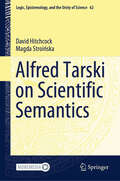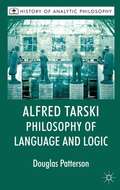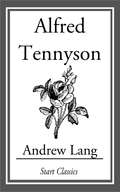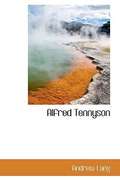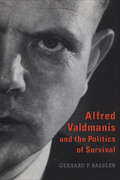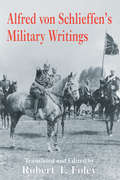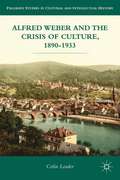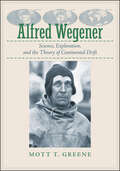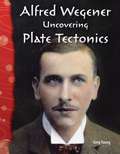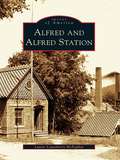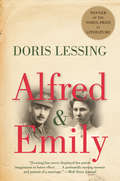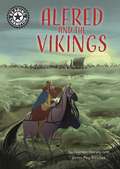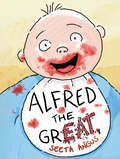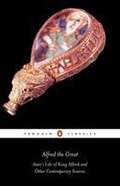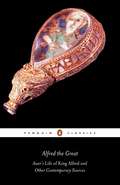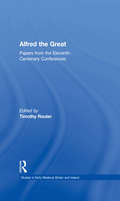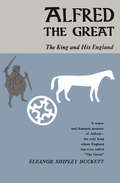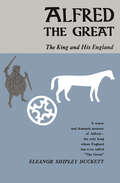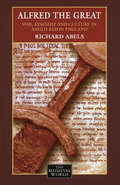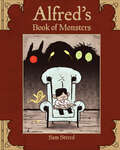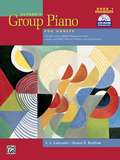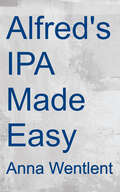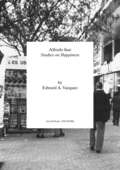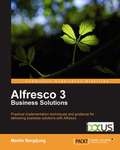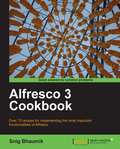- Table View
- List View
Alfred Tarski on Scientific Semantics (Logic, Epistemology, and the Unity of Science #62)
by David Hitchcock Magda StroińskaThis book tells the story of the landmark event in modern logic whereby Alfred Tarski became “the man who defined truth”. Alfred Tarski’s classic monograph on truth became known internationally in 1935, when he presented its ideas in German at an international conference and collaborated in preparation of its German translation. This book provides the first English translation of the Polish version of Tarski’s conference paper, which for purposes of comparison is printed side-by-side with a new exact English translation of the German version. It offers for the first time a comprehensive and detailed analysis of the paper, and for the first time a description and analysis of the discussion of the paper immediately after its presentation. It discusses 22 substantive differences between the two versions. The book also extracts from recently discovered correspondence about the German translation of the truth monograph how it was decided to produce such a translation, the process of vetting and changing the translation, changes requested by Tarski, objections to the appeal to intuition in the Polish original (supported by a list of those appeals with their replacements in the German and English translations), other translational issues, discrepancies other than those concerning appeals to intuition between the Polish original and its German translation, the “Keystone cops” saga of Tarski’s off-prints, and monetary matters. It lists from Tarski’s journal his skiing, mountaineering and tourist trips in 1935, and describes his companions on those trips. An electronic supplement translates or summarizes the complete correspondence, with comments, and includes images from Tarski’s journal of his itineraries of his 1935 trips, with the editors' explanatory comments.
Alfred Tarski: Philosophy of Language and Logic
by Douglas PattersonThis study looks to the work of Tarski's mentors Stanislaw Lesniewski and Tadeusz Kotarbinski, and reconsiders all of the major issues in Tarski scholarship in light of the conception of Intuitionistic Formalism developed: semantics, truth, paradox, logical consequence.
Alfred Tennyson
by Andrew LangAndrew Lang (1844-1912) was a prolific Scots man of letters, a poet, novelist, literary critic and contributor to anthropology. He now is best known as the collector of folk and fairy tales. He was educated at the Edinburgh Academy, St Andrews University and at Balliol College, Oxford. As a journalist, poet, critic and historian, he soon made a reputation as one of the ablest and most versatile writers of the day. Lang was one of the founders of the study of "Psychical Research," and his other writings on anthropology include The Book of Dreams and Ghosts (1897), Magic and Religion (1901) and The Secret of the Totem (1905). He was a Homeric scholar of conservative views. Other works include Homer and the Epic (1893); a prose translation of The Homeric Hymns (1899), with literary and mythological essays in which he draws parallels between Greek myths and other mythologies; and Homer and his Age (1906). He also wrote Ballades in Blue China (1880) and Rhymes la Mode (1884).
Alfred Tennyson
by Andrew LangINTRODUCTION. IN writing this brief sketch of the Life of Tennyson, and this attempt to appreciate his work, I have rested almost entirely on the Bio- graphy by Lord Tennyson with his kind per- mission and on the text of the Poems. <P> <P> As to the Life, doubtless current anecdotes, not given in the Biography, are known to me, and to most people. But as they must also be familiar to the author of the Biography, I have not thought it desirable to include what he rejected. The works of the localisers I liave not read Tennyson disliked these researches, as a rule, and they appear to be unessential, and often hazardous. The professed commentators I have not consulted. It appeared better to give ones own impressions of the Poems, unaffected by the impressions of others, except in one or two cases where matters of fact rather than of taste seemed to be in question. Thus on two or three points I have ventured to differ from a distinguished living critic, and have given the reasons for my dissent. . .
Alfred Valdmanis and the Politics of Survival
by Gerhard P. BasslerAlfred Valdmanis is best known in Canada for his infamous role in Premier Joey Smallwood's scheme to industrialize Newfoundland. A Latvian immigrant, he was appointed Director General of Economic Development in 1950 with the understanding that through his connections to Europe he could entice German and Baltic industrialists to the isolated, rural island. His influence was brought to an abrupt end when, in 1954, he was charged with defrauding the government. The media, latching on to his murky past and his possible affiliation with war criminals, made him the scapegoat of Newfoundland's problems, painting him as part comedian, part sinister villain. This was not the first time his name was connected with controversial issues. Valdmanis's wily political manoeuvring is more the stuff of fiction than history. Between 1938, at age 29, and his ironic downfall in the safe haven of Canada, he was a finance minister of pre-war Latvia, a government official during the Soviet invasion, a shrewd collaborator under the Nazi occupation, then, a friend to the Allies, a spokesman for Latvian POW and displaced persons, and an adviser to the government of Canada. In this first serious biography of Alfred Valdamis historian Gerhard Bassler casts the story of this political manipulator and chameleon in new terms: the often tragic consequences of the will to survive.
Alfred Von Schlieffen's Military Writings (Military History and Policy)
by Robert T. FoleyA collection of some of the writings of Generalfeldmarschall Alfred Graf von Schlieffen, one of the more intriguing of Imperial Germany's military figures. Schlieffens 15 years as Chief of the General staff left a stamp upon both military and political institutions of Wilhelmine Germany.
Alfred Weber and the Crisis of Culture, 1890–1933
by Colin LoaderAlfred Weber was an important participant in the dialogue over the political and cultural crises of the late Empire and Weimar Republic. This study connects Weber's career to the social, political, intellectual, cultural, and institutional contexts of the period.
Alfred Wegener: Science, Exploration, and the Theory of Continental Drift
by Mott T. GreeneA masterful biography of Alfred Wegener (1880–1930), the German scientist who discovered continental drift.Winner of the CHOICE Outstanding Academic Title of the Choice ACRLAlfred Wegener aimed to create a revolution in science which would rank with those of Nicolaus Copernicus and Charles Darwin. After completing his doctoral studies in astronomy at the University of Berlin, Wegener found himself drawn not to observatory science but to rugged fieldwork, which allowed him to cross into a variety of disciplines. The author of the theory of continental drift—the direct ancestor of the modern theory of plate tectonics and one of the key scientific concepts of the past century—Wegener also made major contributions to geology, geophysics, astronomy, geodesy, atmospheric physics, meteorology, and glaciology. Remarkably, he completed this pathbreaking work while grappling variously with financial difficulty, war, economic depression, scientific isolation, illness, and injury. He ultimately died of overexertion on a journey to probe the Greenland icecap and calculate its rate of drift. This landmark biography—the only complete account of the scientist’s fascinating life and work—is the culmination of more than twenty years of intensive research. In Alfred Wegener, Mott T. Greene places Wegener’s upbringing and theoretical advances in earth science in the context of his brilliantly eclectic career, bringing Wegener to life by analyzing his published scientific work, delving into all of his surviving letters and journals, and tracing both his passionate commitment to science and his thrilling experiences as a polar explorer, a military officer during World War I, and a world-record–setting balloonist. In the course of writing this book, Greene traveled to every place that Alfred Wegener lived and worked—to Berlin, rural Brandenburg, Marburg, Hamburg, and Heidelberg in Germany; to Innsbruck and Graz in Austria; and onto the Greenland icecap. He also pored over archives in Copenhagen, Munich, Marburg, Graz, and Bremerhaven, where the majority of Wegener’s surviving papers are found. Written with great immediacy and descriptive power, Alfred Wegener is a powerful portrait of the scientist who pioneered the modern concept of unified Earth science. The book should be of interest not only to earth scientists, students of polar travel and exploration, and historians but to all readers who are fascinated by the great minds of science.
Alfred Wegener: Uncovering Plate Tectonics: Earth and Space Science (Science Readers)
by Greg YoungIn this appealing biography, children will read about the fascinating life, theories, and discoveries of Alfred Wegener. From his time in Greenland studying meteorology with hot balloons to his theory of Pangea, readers will be eager to learn more about Wegener's contributions to science and the strides he took towards developing the study of plate tectonics. The easy-to-read text, accessible glossary, helpful index, and intriguing facts work in conjunction with the lively images and captivating lab activity to engage readers from beginning to end! <P><P>Lexile Measure: 630L
Alfred and Alfred Station
by Laurie Lounsberry McfaddenAlfred and Alfred Station reveals the heritage of a southwestern New York State community nestled in the hills of Allegany County. With more than 200 pictures, the story honors the early pioneers who in 1807 permanently settled on forested land once inhabited by the Seneca Nation. It focuses on not only education--always highly valued, as evidenced in the three institutions of higher learning here--but also on the people, businesses, farms, and civic organizations that have enriched the town for 200 years.
Alfred and Emily
by Doris LessingI think my father's rage at the trenches took me over, when I was very young, and has never left me. Do children feel their parents' emotions? Yes, we do, and it is a legacy I could have done without. What is the use of it? It is as if that old war is in my own memory, my own consciousness.In this extraordinary book, the 2007 Nobel Laureate Doris Lessing explores the lives of her parents, each irrevocably damaged by the Great War. Her father wanted the simple life of an English farmer, but shrapnel almost killed him in the trenches, and thereafter he had to wear a wooden leg. Her mother, Emily, spent the war nursing the wounded in the Royal Free Hospital after her great love, a doctor, drowned in the Channel.In the fictional first half of Alfred and Emily, Doris Lessing imagines the happier lives her parents might have made for themselves had there been no war; a story that begins with their meeting at a village cricket match outside Colchester. This is followed by a piercing examination of their relationship as it actually was in the shadow of the Great War, of the family's move to Africa, and of the impact of her parents' marriage on a young woman growing up in a strange land."Here I still am," says Doris Lessing, "trying to get out from under that monstrous legacy, trying to get free." Triumphantly, with the publication of Alfred and Emily, she has done just that.
Alfred and the Vikings: Independent Reading 18 (Reading Champion #455)
by Damian HarveyWhen Vikings arrive and invade, King Alfred summons the Anglo-Saxons to fight. This true story of the famous defeat of the Vikings is brought to life through the eyes of Alfred's squire, who witnesses Alfred's bravery first hand.This first colour chapter book is a perfectly levelled, accessible text for Key stage 2 readers aged 10-11 or in year 6. Reading Champion offers independent reading books for children to practise and reinforce their developing reading skills.Fantastic, original stories are accompanied by engaging artwork and activities to provoke deeper response and encourage writing. Each book has been carefully graded so that it can be matched to a child's reading ability, encouraging reading for pleasure.The Key Stage 2 Reading Champion Books are suggested for use as follows:Independent Reading 11: start of Year 3 or age 7+Independent Reading 12: end of Year 3 or age 7+Independent Reading 13: start of Year 4 or age 8+Independent Reading 14: end of Year 4 or age 8+Independent Reading 15: start of Year 5 or age 9+Independent Reading 16: end of Year 5 or age 9+Independent Reading 17: start of Year 6 or age 10+Independent Reading 18: end of Year 6 or age 10+
Alfred the Great
by Seeta AngusBaby Alfred loves his food, But too much of anything isn’t good! Chocolate mice may be his treat, But is there something magical in that sweet? Alfred is a baby whose tummy grows at an alarming rate, but Mum and Dad just keep feeding him. Read the story and laugh at this funny tale, full of silly nonsense and overflowing with bottles of milk and food! Be on the lookout in the near future for Katherine the Great, Alfred’s baby sister, coming soon!
Alfred the Great: Asser's Life of King Alfred and Other Contemporary Sources
by Anonymous Simon KeynesThe socialist ideals of the early twentieth century argued for a radical overhaul of architectural philosophy, reasserting the value of public space and redefining all forms of creative endeavor towards the benefit of the collective. These ideals were realized in the design of public buildings, streets and squares, as well as in films, literature and the visual arts. Urban planning under Eastern European Socialism is consequently inseparable from its ideological aspirations, and while its governmental structure may have collapsed, its architectural expressions remain. Over the last decade, however, many classic buildings of this era have been stripped of their political import, being repurposed or even destroyed. The Post Socialist City reveals that many cities across Eastern Europe remain dominated by the industrial complexes and panel buildings erected by Socialism, and analyzes the implications of the uses to which they have subsequently been put.
Alfred the Great: Asser's Life of King Alfred and Other Contemporary Sources
by AsserAsser's Life of King Alfred, written in 893, is a revealing account of one of the greatest of medieval kings. Composed by a monk of St David's in Wales who became Bishop of Sherborne in Alfred's service and worked with him in his efforts to revive religion and learning in his kingdom, this life is among the earliest surviving royal biographies. It is an admiring account of King Alfred's life, written in absorbing detail - chronicling his battles against Viking invaders and his struggle to increase the strength and knowledge of his people, and to unite his people at a time of conflict, uncertainty and war.
Alfred the Great: Papers from the Eleventh-Centenary Conferences (Studies in Early Medieval Britain and Ireland #3)
by Timothy Reuter1999 marked the eleven-hundredth anniversary of the death of Alfred the Great, and to mark this event, two international conferences were held to re-evaluate and contextualise Alfred's achievements and the developments of his reign. This volume includes papers given at both events and provides substantial assessments, by leading scholars, of issues of source-criticism, of the large corpus of Old English literature associated with Alfred and of developments in government and society in late ninth-century England. It also explores how Alfred and his kingdom related to the wider geo-political and cultural situation in the British isles and continental Europe, and closes with a substantial survey of the uses and shifts in Alfred's reputation in the centuries following his death. This substantial and wide ranging volume will become a standard reference work for anyone interested in Old English literature or Anglo-Saxon history, and will set the pattern of future scholarly debate.
Alfred the Great: The King and His England
by Eleanor Shipley DuckettFilled with drama and action, here is the story of the ninth-century life and times of Alfred--warrior, conqueror, lawmaker, scholar, and the only king whom England has ever called "The Great." Based on up-to-date information on ninth-century history, geography, philosophy, literature, and social life, it vividly presents exciting views of Alfred in every stage of his long career and leaves the reader with a sharply-etched picture of the world of the Middle Ages.
Alfred the Great: The King and His England (Phoenix Books)
by Eleanor Shipley DuckettFrom the author of The Gateway to the Middle Ages, &“a fascinating portrait of an enlightened monarch against a background of darkness and ignorance&” (Kirkus Reviews). Filled with drama and action, here is the story of the ninth-century life and times of Alfred—warrior, conqueror, lawmaker, scholar, and the only king whom England has ever called &“The Great.&” Based on up-to-date information on ninth-century history, geography, philosophy, literature, and social life, it vividly presents exciting views of Alfred in every stage of his long career and leaves the reader with a sharply etched picture of the world of the Middle Ages.
Alfred the Great: War, Kingship and Culture in Anglo-Saxon England (The Medieval World)
by Richard AbelsThis biography of Alfred the Great, king of the West Saxons (871-899), combines a sensitive reading of the primary sources with a careful evaluation of the most recent scholarly research on the history and archaeology of ninth-century England. Alfred emerges from the pages of this biography as a great warlord, an effective and inventive ruler, and a passionate scholar whose piety and intellectual curiosity led him to sponsor a cultural and spiritual renaissance. Alfred's victories on the battlefield and his sweeping administrative innovations not only preserved his native Wessex from viking conquest, but began the process of political consolidation that would culminate in the creation of the kingdom of England. Alfred the Great: War, Kingship and Culture in Anglo-Saxon England strips away the varnish of later interpretations to recover the historical Alfredpragmatic, generous, brutal, pious, scholarly within the context of his own age.
Alfred's Book of Monsters
by Sam StreedTrick or treat?With nods to Tim Burton, Edward Gorey, and Neil Gaiman, this humorous picture book about a Victorian boy obsessed with monsters presents a dark and appealing world, created by debut author/illustrator Sam Streed.In the graveyard, between stone monuments for forgotten souls, lurks the Black Shuck. . . . Its one blood-red eye burns with an undying rage.After reading about the slimy Nixie, the angry Black Shuck, and the creepy Lantern Man in his beloved Book of Monsters, Alfred decides to invite the monsters to teatime with his crusty old aunty, who thinks monsters are an improper obsession for a respectable young boy.
Alfred's Group Piano For Adults Student Book: An Innovative Method (Alfred's Group Piano For Adults #Book 1)
by E. L. Lancaster Kenon D. RenfrowThe Second Edition of Alfred's Group Piano for Adults Book 1, includes updates inspired by numerous recommendations from group piano teachers and students. This book includes a CD-ROM containing both Audio and General MIDI Files of the 500+ accompaniments included in the text, each with an interesting and engaging arrangement coupled with the piano part. Designed for collegiate non-keyboard music majors with little or no keyboard experience, the easy-to-use text contains 26 units, each intended to be covered in one week, thus fulfilling two semesters or three quarters of study. Theory, technique, sight-reading, repertoire, harmonization, improvisation, and ensemble activities are taught thoroughly and consistently throughout the text.
Alfred's Ipa Made Easy: A Guidebook For The International Phonetic Alphabet
by Anna WentlentHow many years has it been since your last diction class? This handy guidebook is an easy reference for the symbols used in IPA: what they look like and how they are pronounced. Example words for every symbol are included in English, Latin, Italian, German, French, and Spanish. And an online resource includes recorded demonstrations of every sound. A clear and concise tool for singing in foreign languages, equally useful in the choir room and the vocal studio.
Alfredo Jaar: Studies on Happiness (Afterall Books / One Work)
by Edward A. VazquezA richly illustrated survey of Alfredo Jaar&’s Studies on Happiness (1979–1981) and its deep political stakes in the historical context of Chile&’s neoliberal transition.Between 1979 and 1981, Alfredo Jaar asked Chileans a deceptively simple question: "Are you happy?" Through private interviews, sidewalk polls and video-recorded forums, among other interventions, Jaar&’s three-year and seven-phase project, Studies on Happiness, addressed a furtive and fearful population living under Augusto Pinochet&’s military dictatorship. It also spoke to a country in transition, as a newly adopted constitution remade Chile through privatisation and other neoliberal reforms. In its varied interventions and direct mode of address, Studies on Happiness functioned as a feedback device meant to catalyse a critical awareness with its blunt questioning.Edward A. Vazquez contextualises Studies on Happiness within Jaar&’s early production and situates his practice within a Chilean art world haunted by the residues of political violence. This study foregrounds the project&’s historical embeddedness and the deep political stakes of its apparent sociality, recognising the crucial role that context has always played in Jaar&’s practice. By turning to the Santiago of Studies on Happiness, Vazquez explores the work&’s political and art historical environment and provides a wedge to realign current interpretations of Chilean art and hemispheric conceptualism with the openness central to Jaar&’s project.
Alfresco 3 Business Solutions
by Martin BergljungThis book guides you through all the practical aspects of the Alfresco CMS with numerous case studies and real life scenarios. It is packed with illustrative examples and diagrams to make learning easier and straightforward. This book is designed for system administrators and business owners who want to learn and implement Alfresco Business Solutions in their teams or business organizations. General familiarity with Java and Alfresco is required.
Alfresco 3 Cookbook
by Snig BhaumikWritten in a cookbook style, this book offers solutions using a recipe based approach. Each recipe contains step-by-step instructions followed by an analysis of what was done in each task and other useful information.If you are a software developer interested in content management systems, who wants to work with Alfresco or is already experienced in Alfresco, this cookbook will get you up and running quickly. If you want rapid implementation of Alfresco's most important and effective features then this is the cookbook for you.
